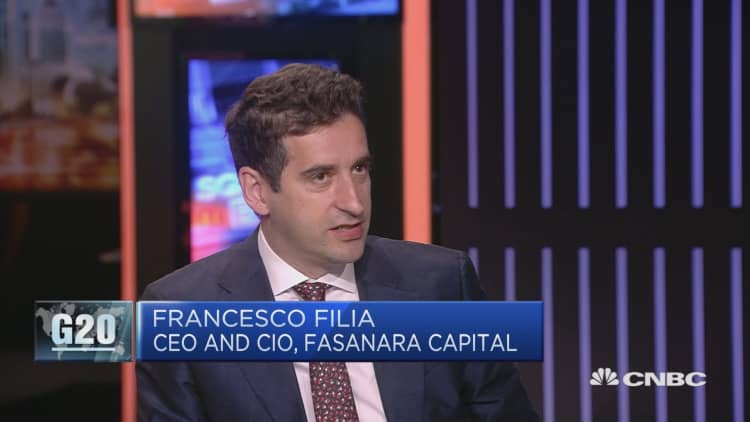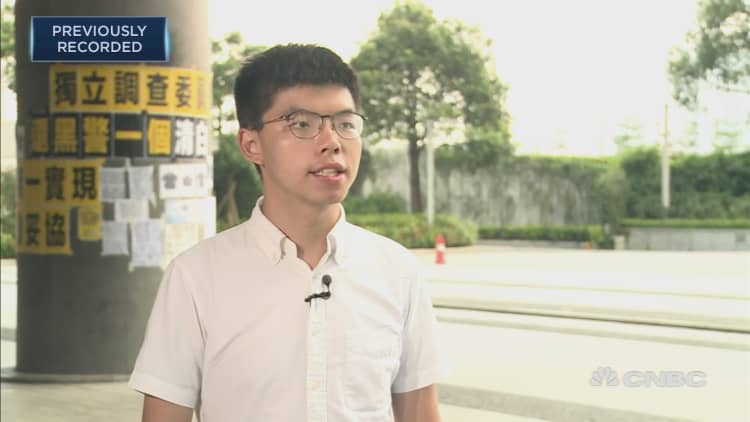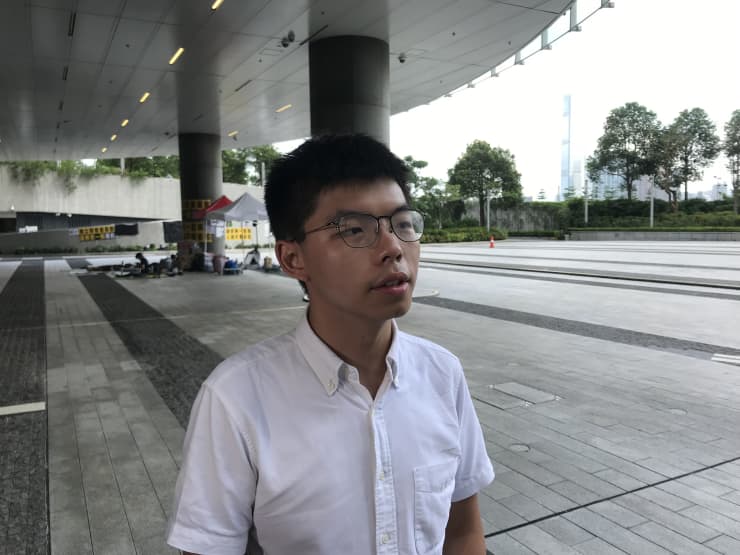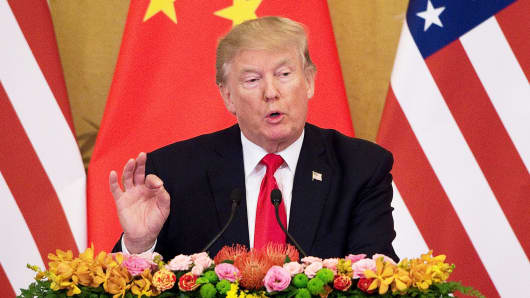- Trump has touted his “far better than expected” meeting with Chinese dictator Xi Jinping at the G-20 summit in Japan, but experts say that Beijing appears to have gained an upper hand in the trade war.
- Trump said after his meeting with Xi that Huawei will be allowed to purchase U.S. products — suggesting a softening in Washington’s blacklist of the Chinese tech firm.
By Yen Nee Lee

China appears to be the winner in the trade war, strategist says
Donald Trump has grandiloquently touted his meeting with Chinese dictator Xi Jinping at the weekend as “far better than expected” — but trade and investment experts said Beijing appears to have gained the upper hand in the trade war.
Trump and Xi agreed at the G-20 summit in Japan to withhold from slapping additional tariffs on each other’s products as the two sides return to the negotiating table in a bid to finalize a trade agreement.
In addition, Trump agreed to allow Huawei to purchase U.S. products and China will buy “large amounts” of American farm produce.
Washington had earlier announced a ban that restricts Huawei’s ability to do business with U.S. firms due to national security concerns.
Washington had earlier announced a ban that restricts Huawei’s ability to do business with U.S. firms due to national security concerns.
Trump’s softer stance on the Chinese tech giant was seen by observers as a major concession that the U.S. has granted China.
“It is looking like, so far, China is coming out as a winner from this G-20,” Francesco Filia, chief executive and chief investment officer at asset management firm Fasanara Capital, told CNBC’s “Squawk Box Europe” on Monday.
“It’s not even clear what they gave up in order to get it,” he said, noting there was a lack of details about what the two leaders agreed on at the meeting.
Filia is not the only one who has expressed skepticism over the U.S.-China trade developments.
Trump standing down on some of his threats to China was “one of the most concerning outcomes at the G-20,” said Danielle DiMartino Booth, chief executive of research firm Quill Intelligence.
“He obviously gave a lot of ground back to China,” she told CNBC’s “Squawk Box Asia” on Wednesday.
Huawei’s status
Back home, both the U.S. and China governments appeared to tread Trump’s Huawei announcement with caution.
“It is looking like, so far, China is coming out as a winner from this G-20,” Francesco Filia, chief executive and chief investment officer at asset management firm Fasanara Capital, told CNBC’s “Squawk Box Europe” on Monday.
“It’s not even clear what they gave up in order to get it,” he said, noting there was a lack of details about what the two leaders agreed on at the meeting.
Filia is not the only one who has expressed skepticism over the U.S.-China trade developments.
Trump standing down on some of his threats to China was “one of the most concerning outcomes at the G-20,” said Danielle DiMartino Booth, chief executive of research firm Quill Intelligence.
“He obviously gave a lot of ground back to China,” she told CNBC’s “Squawk Box Asia” on Wednesday.
Huawei’s status
Back home, both the U.S. and China governments appeared to tread Trump’s Huawei announcement with caution.
A statement by China’s foreign minister on the meeting between Trump and Xi didn’t mention Huawei at all, while White House economic advisor Larry Kudlow said the president didn’t intend to grant “a general amnesty” to the Chinese tech firm.
Kudlow said Huawei remained on the so-called entity list, which largely blocks it from buying U.S. products.
Kudlow said Huawei remained on the so-called entity list, which largely blocks it from buying U.S. products.
He added, however, that the Commerce Department will grant more licenses to allow American companies to do business with Huawei as long as the transactions don’t threaten national security in the U.S.
The lack of clarity surrounding the president’s comments on Huawei is one reason why reaction in markets following the Trump-Xi meeting “wasn’t actually that strong,” according to Eric Robertsen, head of global macro strategy and FX research at Standard Chartered Bank.
While negative risks surrounding trade have gone away for now, there wasn’t much “meaningful or tangible” outcome from that meeting between the two leaders, Robertsen told CNBC’s “Squawk Box Asia” on Wednesday.
But Suresh Tantia, senior investment strategist in Asia Pacific at Credit Suisse, said Trump’s Huawei announcement shows that “everything can be negotiated”.
While negative risks surrounding trade have gone away for now, there wasn’t much “meaningful or tangible” outcome from that meeting between the two leaders, Robertsen told CNBC’s “Squawk Box Asia” on Wednesday.
But Suresh Tantia, senior investment strategist in Asia Pacific at Credit Suisse, said Trump’s Huawei announcement shows that “everything can be negotiated”.




